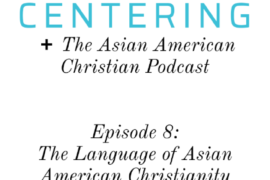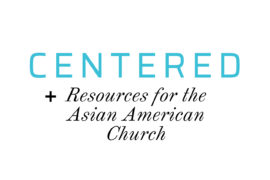A recent survey attempts to shed some light.
By Kevin Doi and Joel Jin
According to a survey conducted by the Asian American Center at Fuller Seminary, senior pastors of largely mono-cultural, independently-led, English-speaking congregations reported ethnic identity as less important than their colleagues pastoring other types of Asian American congregations.
Participating pastors drawn from Asian American ministries across the US were asked to select the type of congregation that best described their ministry context. The choices were: “English Ministry” (EM), defined as an English-speaking ministry housed within an immigrant church; “Independent English Ministry” (Independent EM), an English-speaking congregation operating as an independent congregation with regard to pastoral leadership, polity, location, and budget; and “Pan-Asian/Multi-ethnic” (PA/ME) churches, described as more ethnically diverse, yet primarily Asian American-led.
When asked to rate the importance of ethnic identity in relation to their congregations, senior pastors of all three categories of churches indicated that ethnic identity was a relatively important consideration (66% of EM pastors, 60% of Independent EM pastors, and 65% of PA/ME pastors). Similarly, a relatively high proportion of pastors indicated the importance of ethnicity to congregational life: 60% of PA/ME agreed it was an important consideration, as did 58% of EM, and 53% of Independent EM pastors (see Figure 1).
Interestingly, however, when asked if “our church identifies as an ethnic/racial church,” 87% of EM pastors agreed with the statement compared to only 55% of PA/EM and 53% of Independent EM pastors (see Figure 2). In other words, when these pastors look out at their congregations, they literally see Asian American faces staring back at them. However, EM pastors may more readily acknowledge the reality of an Asian/Asian American ethnic or racial identity in relation to their congregations as compared to their colleagues of Pan-Asian/Multi-ethnic or Independent EM churches.
Further indication of this trend emerged as pastors were asked whether their congregations consider race or ethnicity in relation to various aspects of ministry. When asked if ethnicity or racial identity is a consideration in choosing discipleship curriculum, 26% of EM pastors and 25% of PA/ME pastors agreed it was—still relatively low numbers—but only 7% of Independent EM pastors agreed (see Figure 2).
Gaps in opinions widened when questions were posed about pastors’ personal lives. When asked to indicate the importance of “cultural training related to my current personal life as a pastor,” 68% of EM pastors said cultural training was important, as did 55% of PA/ME pastors (see Figure 4). By comparison, only 20% of Independent EM pastors agreed.
In this particular portion of the survey, participants were asked to rate the relative importance of 14 different aspects of ministry. When results were sorted, “cultural training” ranked highest for EM pastors, but least important for Independent EM pastors. Meanwhile, it ranked 7th (near the middle) for PA/ME pastors.
When pastors were asked to rate the importance of ethnic identity in relation to themselves, data again highlighted differences in perspective. When asked to indicate the importance of ethnic identity as it pertained to “my personal spiritual life as a pastor,” 50% of EM pastors and 45% of PA/ME pastors agreed that ethnic identity was important. By comparison, only 20% of Independent EM pastors did (see Figure 5).
Results from the survey suggest that there may be some theological disconnect between ethnic and Christian identity for Asian American pastors across congregational types, impacting the integration of ethnic identity in spiritual formation. While relevant among senior pastors across all three categories of Asian American contexts, this may be particularly acute for those pastors identifying as Independent EM ministers.
What do the results tell us?
What might the responses mean?
- One hypothesis is theological: Senior pastors of Asian American congregations may be viewing ethnic identity as subservient to Christian identity rather than integral to it. While following Christ deserves highest allegiance, it is also true that discipleship is not disembodied. People can only follow Jesus as ethnic persons within ethnic communities. Among the legacies of white normative evangelical culture is the assumption that ethnicity is neutral, irrelevant, or unnecessary to faith. What we may be observing is the effect of a white theological construct on ethnic identity formation that marginalizes or erases ethnic awareness or considerations among Asian American ministers and their congregations.
- A second hypothesis is psycho-social: It may be that trauma or pain related to participation in ethnic-immigrant churches may produce a lingering impact, particularly on Independent EM pastors as they plant new independent congregations. Are Independent EM ministers viewing Asian heritage, cultural roots, or immigrant-community ties as the cause or source of significant trauma, loss, or distress? If so, this pain may help to explain why Independent EM pastors may be distancing themselves from identifying more closely with ethnicity or less embracing of cultural training as compared to their colleagues.
- A final hypothesis is missional. Again, it may be that Independent EM pastors—launching churches of their, independent from the immigrant church—choose to downplay their racial/ethnic identity with the hope of providing a more inclusive church to non-Asians. Of course, racial identity not only shapes church culture but also influences how non-Asians respond and embrace these Asian American congregations. Because of racialization and the presumption of white normativity in the United States, Asian American ministers may not always feel like they can establish churches in the same way whites can.
This hypothesis is supported by previous studies that suggest Asian American pastors will erase or minimize ethnic specificity in sermon illustrations and potlucks in order to appeal to a broader demographic that includes non-Asians. In some cases, whiteness is still equated with being American while Asian-ness is associated with being “foreign.” In order to appeal to non-Asians, survey results may indicate that at some level Asian American senior pastors are resorting to a kind of color-blind theology in the attempt to expand their mission beyond Asian Americans.
This study seems to be telling us that Asian American senior pastors do see that their congregations as “ethnic.” Yet at the same time, they may be less sure where ethnicity and race fits within their Christian frameworks, or how ethnic and racial identity impacts how they and their congregations understand their ministry and mission in the world.
If this survey group is representative of the senior pastors serving in various Asian American contexts, there is space for further conversation and training on racial/ethnic identity formation at the personal and ecclesial level. It is important to help pastors integrate Asian American racial and ethnic identity with being a follower of Christ. When pastors can create and articulate a coherent narrative of their own lives as Asian Americans—and come to understand that God loves them in their ethnicity (and not apart from it)—pastors in turn can nurture the ethnic and racial development of their congregations. This is the kind of development necessary to encompass Christian life, community, and mission in all its God-given beauty and diversity.
Acknowledgements: Thank you to Daniel D. Lee, Ph.D., Ken Fong, D.Min., Miyoung Yoon Hammer, Ph.D., Kenneth T. Wang, Ph.D., Petrina Jap, and Asian American students of Fuller Theological Seminary for your valuable assistance on this project.
This summary is excerpted from a longer article, including details on methodology and further analysis of the data. You can download a copy of the full article at this link.



40 Comments
Pingback: earn passive income
Pingback: ketamin kaufen
Pingback: 늑대닷컴
Pingback: fryds
Pingback: qiuqiu99 poker
Pingback: ข่าวกีฬา
Pingback: ทินเนอร์คุณภาพสูง
Pingback: 토렌트 다운
Pingback: เว็บคาสิโนออนไลน์
Pingback: เช่าเรือสปีดโบ๊ท,เช่าสปีดโบ๊ท เจ้าพระยา,เรือเช่าเหมาลํา เจ้าพระยา
Pingback: MG Live คาสิโนสด เล่นบาคาร่า เว็บพนันออนไลน์
Pingback: ป้ายบิลบอร์ด
Pingback: lsm99
Pingback: how to join illuminati
Pingback: ทางเข้าสโบเบ็ต
Pingback: 웹툰 다시보기
Pingback: ข่าวบอล
Pingback: ห้องพักรายวัน คู้บอน
Pingback: bonanza178
Pingback: http://farmmom.net/bbs/board.php?bo_table=free&wr_id=1123477
Pingback: เว็บตรง สล็อตออนไลน์
Pingback: หวยออนไลน์ LSM99
Pingback: healing music
Pingback: bonanza178
Pingback: coffee shop ambience
Pingback: ขออย
Pingback: ร้านสติ๊กเกอร์
Pingback: อุปกรณ์ติดตั้งโซล่าเซล
Pingback: รับทำวิจัย
Pingback: ufa1913 คืออะไร เชื่อถือได้หรือไม่?
Pingback: jebol togel
Pingback: ruay
Pingback: fortnitecheats
Pingback: maplestory font
Pingback: ซอฟต์แวร์บริหารงานบริการทำความสะอาด
Pingback: Skrota bilen Kållered
Pingback: Bildemontering Stenungsund
Pingback: harem77
Pingback: ปั้มไลค์
Pingback: essentials fear of god